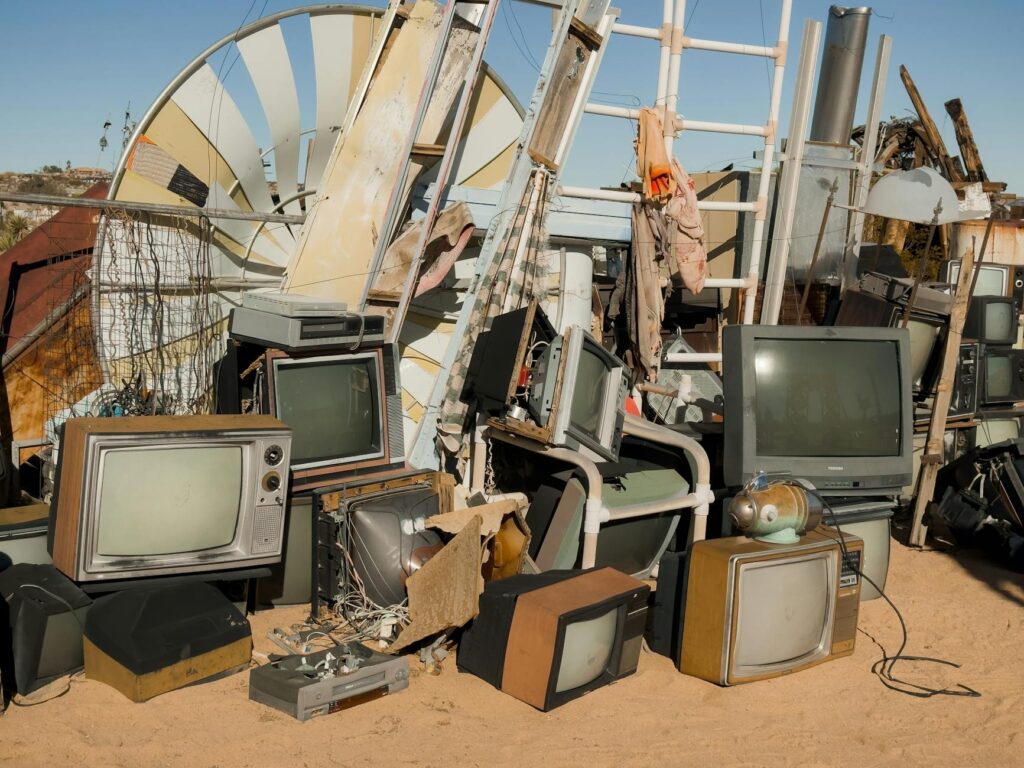U.S. Lawmakers Want to Turn Old Gadgets Into a Weapon Against China
Okay, here’s something you don’t see every day—Republicans and Democrats actually agreeing on something. And it’s all about that pile of old phones and laptops collecting dust in your drawer. Turns out, America’s e-waste might just be our secret weapon against China’s grip on tech materials. Who knew?
Why Your Old Phone Is More Valuable Than You Think
The Mess We’re In
Let me hit you with some numbers that’ll make your head spin. Last year alone, the world threw out enough electronics to fill—get this—57 million pickup trucks. The U.S. contributed about 7 million truckloads to that mess. Here’s the kicker: we’re only recycling one-fifth of it properly. The rest? It’s leaking nasty stuff like lead into the ground while we literally trash millions in gold and rare metals every year. Makes you think twice about tossing that old iPad, huh?
China’s Playing Chess While We Play Checkers
Here’s the thing that keeps lawmakers up at night: China controls 80% of the rare earth minerals that power everything from your iPhone to fighter jets. We’re importing over half our critical minerals—which is like depending on your ex to keep the wifi running. Not exactly a smart long-term strategy.
How Politicians Are Trying to Fix This
Money Talks
California just dropped $50 million on e-waste recycling, and suddenly everyone’s paying attention. Now there’s talk of federal tax breaks for recycling plants and cash for research. “This isn’t tree-hugger stuff—it’s about not getting steamrolled by China,” says Florida Rep. Maria Salazar, which is saying something coming from a Republican.
Strange Bedfellows
You’ve got blue-state governors like Newsom and Hochul pushing recycling programs while congressional committees cozy up to Apple and Tesla. Meanwhile, startups are geeking out over better ways to suck lithium from dead batteries. It’s like the whole country suddenly remembered that reduce-reuse-recycle wasn’t just a school poster.
Why This Could Actually Work
Urban Mining 101
Get this: recycling a ton of old phones gives you 300 times more gold than digging up a ton of gold ore. With new chemical tricks and AI sorters, we’re getting better at grabbing cobalt and lithium too. “We’re literally throwing away a goldmine,” says MIT’s Dr. Ellen Park. And she’s not being metaphorical.
More Jobs, Less Drama
Scale this up and we’re looking at 100,000+ new jobs in the next ten years. Plus, shorter supply chains mean less panic when China gets moody. West Virginia Senator Joe Manchin—not exactly Mr. Environmentalist—puts it bluntly: “Every recycled circuit board is a middle finger to Beijing.” Okay, maybe he didn’t say it exactly like that, but you get the idea.
Why This Won’t Be Easy
We’re Playing Catch-Up
Here’s the reality check: America has fewer than 50 proper e-waste facilities. Right now, recycling some materials costs 35% more than mining them. But with the right incentives? That gap could disappear faster than your phone battery at a music festival.
Nobody Knows Where to Recycle Stuff
Only 1 in 4 Americans recycle electronics, mostly because finding drop-off spots feels like solving a Rubik’s cube blindfolded. We need recycling education that hits as hard as those “Got Milk?” ads from the 90s.
Proof It Can Work
States Leading the Way
New York’s 2022 law making manufacturers pay for recycling already diverted 40,000 tons of e-waste—that’s like 8,000 elephants worth of old gadgets. California’s program now grabs 1.2 million pounds of lithium annually. Not too shabby.
Tech Companies Getting Creative
A Tesla veteran started Redwood Materials to turn old EV batteries into new ones. Meanwhile, Apple’s Daisy robot tears down iPhones at 200 per hour, harvesting rare earth magnets like a high-tech scrap dealer. Future’s looking less Wall-E, more MacGyver.
What Needs to Happen Next
Smart Policies
Experts want national standards on e-waste and support for “urban mining” startups. Teaming up with Europe could create consistent recycling rules—because nobody likes figuring out different regulations for every country.
What You Can Do
First, find proper recyclers at EPA.gov—not some sketchy parking lot operation. Businesses need to design products that don’t require a PhD to take apart. Most importantly? Tell your representatives this matters. Because right now, China’s laughing all the way to the rare earth bank.
The Bottom Line
In a time when Congress can’t agree on lunch orders, e-waste recycling might be the unlikeliest bipartisan success story. By mining our own junk, America could weaken China’s grip while cleaning up the planet. The real question? Whether we’re smart enough to see the treasure in our trash before it’s too late.
Source: WSJ – US Business

